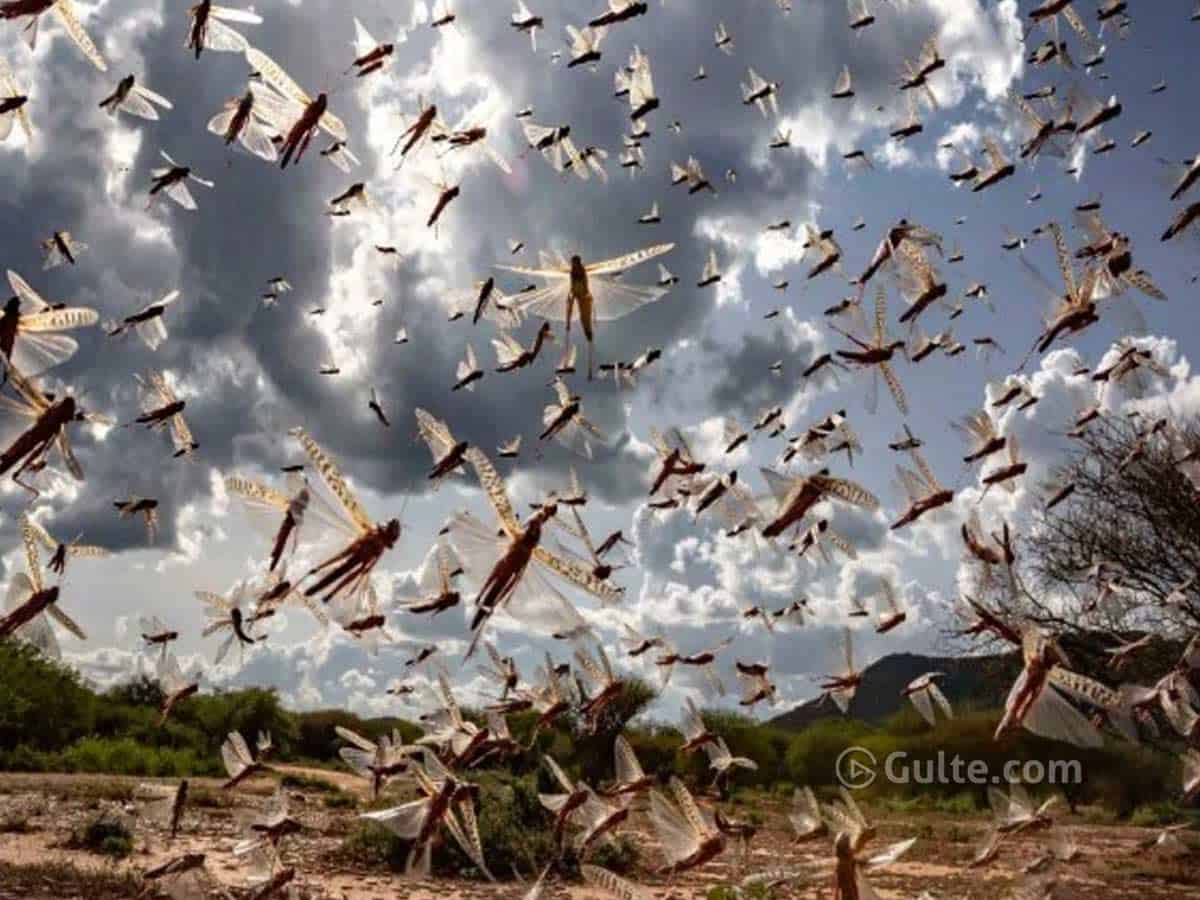Even as the people are struggling with the Covid-19 pandemic, Cyclone Amphan hit the states of Odisha and West Bengal and now, a swarm of locusts which were found on the outskirts of Jhansi district on Saturday moved to Jaipur on Monday morning, posing threat to the crops in large areas.
Though a locust is a small creature weighing just 2 gms, a swarm of this insects can wreak havoc in agricultural fields in vast areas, just in a matter of minutes. The series of disasters are making the netizens wonder if this is the end of humanity.
Incidentally, Covid-19 and locust swarms attacked the world at the same time, in December, 2019. The locust outbreak of intense severity spread from Africa to Middle East and then, to Asia. Environmentalists and scientists say that climate change could have triggered the incursion. The moisture content and availability of food help locusts breed which means rains have a direct impact on this insect population.
With the locust swarms entering Asia through Pakistan, India joined hands with its bête noire to fight the locust flare-up. Setting aside theor political differences for some time, both the countries are working in coordination to check the spread of the locust swarms and the damage caused by them to the crops.
A small swarm contains of 40 million locusts which can consume food equal to that by 35,000 people. Further, it can travel large distances, 100 miles per day, in a short period of time. Scientists fear such type of outbreak may occur more frequently due to climate change.
Tags Locusts Locusts india
 Gulte Movie News And Politics
Gulte Movie News And Politics

















